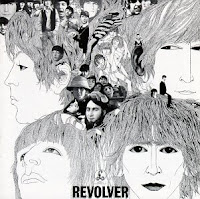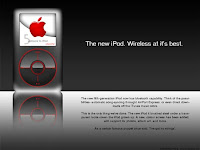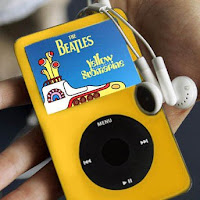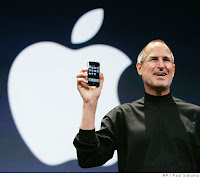
It is possible to spend hours and hours browsing iTunes. I know because I have done it. The iTunes store allows you to see what else other people who have looked at a particular album have bought, and provides links to other artists that you may enjoy. It is possible to get totally immersed in iTunes just by clicking links to new artists that you may never have heard of previously. Before you know it, the entire afternoon has slipped by.
Micheal Bugeja, author of
Interpersonal Divide: The Search for Community in a Technological Age, would argue that this is a negative aspect of the digital music revolution. Rather than spending time interacting with other human beings, we are spending more and more time browsing virtual record libraries on iTunes. He would argue that this total immersion in the digital world erodes our interpersonal relationships.
While it is certainly true that we are spending more time on-line, I take a more optimistic view towards digital technology than Bugeja. iTunes has allowed me to explore a larger number of artists than I would have been exposed if I didn't have Internet access. I am a fan of blues and jazz music, and through iTunes I have discovered artists like
Buddy Guy,
John Scofield and
Susan Tedeschi. I have also downloaded classical music such as Mozart's "Requiem" and the complete Beethoven Symphonies. Many of these artists would be unavailable to me through a traditional brick-and-mortar music store. The argument could be made that digital music has allowed me to expand my cultural awareness.
In addition to expanding my musical horizons, digital music has allowed me to better relate with my friends when we do meet face-to-face. I met one of my best friends because we share a love of blues music, and I "discovered" the blues through iTunes, so contrary to Bugeja's assertion, digital technology has actually increased and enhanced my interpersonal relationships.
Not only has iTunes expanded my musical horizons, but it has actually helped my interaction with others. I met one of my best friends because we both share a love for blues music, and I "discovered" the blues through iTunes. So, contrary to Bugeja's assertion, digital technology has actually help me to forge new relationships rather than aid in the decline of them.
In my previous post I discussed the resurgence of vinyl records. Often times, these records are purchased at traditional record stores. These stores serve as a meeting place, not only for music enthusiasts, but for lovers as vinyl as well. They provide a place where these fans of analog records can discuss the benefits of vinyl over CDs or MP3s. But according to Bugeja, this type of interaction will dwindle in in the future due to the increasing popularity of digital technology. Hopefully other have found the same benefits in digital music that I have, and Bugeja's theory will remain just that - a theory.

 et access, digital music players will have the ability to download songs. Right now, iPod users have to download songs on their computer and then upload them to their iPod. Future generations of the iPod will no doubt include wireless access so that users can browse and purchase music from the iTunes Store anywhere. This technology would also allow users to wirelessly network to their computers to download or upload files without having to connect through the computer's USB port.
et access, digital music players will have the ability to download songs. Right now, iPod users have to download songs on their computer and then upload them to their iPod. Future generations of the iPod will no doubt include wireless access so that users can browse and purchase music from the iTunes Store anywhere. This technology would also allow users to wirelessly network to their computers to download or upload files without having to connect through the computer's USB port.


























